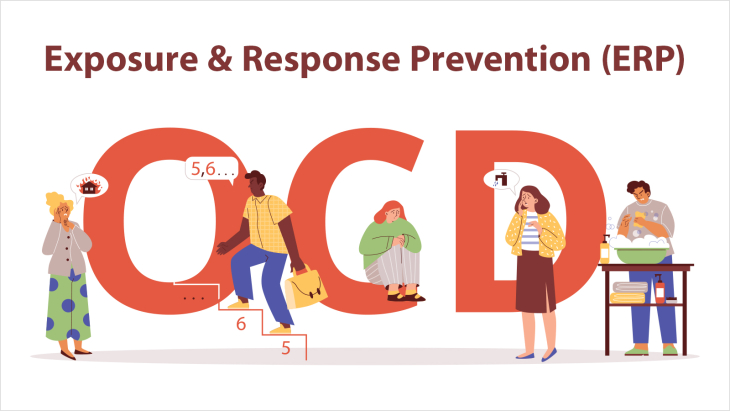Waiting List Only
Exposure & Response Prevention (ERP) Foundations

Location
Dates & Times
Contact
Do you have event related questions or need help with registration?
This foundational training will give clinicians an introduction to treating Obsessive-Compulsive Disorder (OCD). It will walk through the treatment process, including diagnosis, assessment, treatment planning, and practical strategies for implementing Exposure and Response Prevention (ERP), the gold-standard evidence-based treatment for OCD.
| 8:30 AM - 9:00 AM | Registration |
| 9:00 AM - 10:30 AM | OCD Diagnosis & Assessment |
| 10:30 AM - 10:45 AM | Break |
| 10:45 AM - 12:00 PM | OCD Subtypes |
| 12:00 PM - 1:00 PM | Lunch provided by MAHEC |
| 1:00 PM - 2:30 PM | Exposure & Response Prevention (Principles, theory, & research) |
| 2:30 PM - 2:45 PM | Break |
| 2:45 PM - 4:00 PM | Exposure & Response Prevention (Treatment planning, implementation) |
| 8:30 AM - 9:00 AM | Registration |
| 9:00 AM - 10:30 AM | Treating Mental Compulsions & Non-Engagement Responses |
| 10:30 AM - 10:45 AM | Break |
| 10:45 AM - 12:00 PM | Integrating Acceptance & Commitment Therapy & Inhibitory Learning |
| 12:00 PM - 1:00 PM | Lunch provided by MAHEC |
| 1:00 PM - 2:30 PM | Family Accommodation |
| 2:30 PM - 2:45 PM | Break |
| 2:45 PM - 4:00 PM | Treatment Pitfalls, Adjunctive Treatments |
 Mountain Area Health Education Center (MAHEC) has been approved by NBCC as an Approved Continuing Education Provider, ACEP No. 5514. Programs that do not qualify for NBCC credit are clearly identified. MAHEC is solely responsible for all aspects of the programs. 11.00 hours
Mountain Area Health Education Center (MAHEC) has been approved by NBCC as an Approved Continuing Education Provider, ACEP No. 5514. Programs that do not qualify for NBCC credit are clearly identified. MAHEC is solely responsible for all aspects of the programs. 11.00 hours